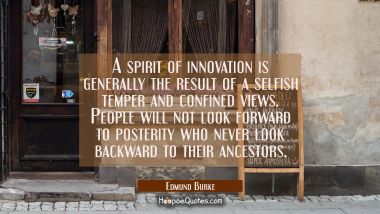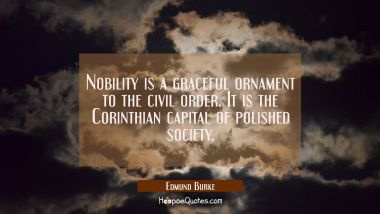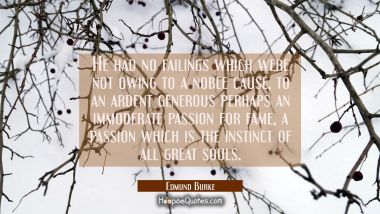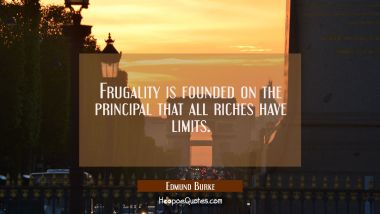
Edmund Burke
Edmund Burke (12 January 1729 – 9 July 1797) was an Irish statesman born in Dublin, as well as an author, orator, political theorist, and philosopher who, after moving to London, served as a member of parliament (MP) for many years in the House of Commons with the Whig Party.
Enjoy the best Edmund Burke picture quotes.
Read more about Edmund Burke on Wikipedia.




























































![[50+ Images] Birthday Wishes for Someone Special in Your Life Quotes](/media/k2/items/cache/b1dbe5e313fb0e0a26b2b36062a36d3a_M.jpg)
